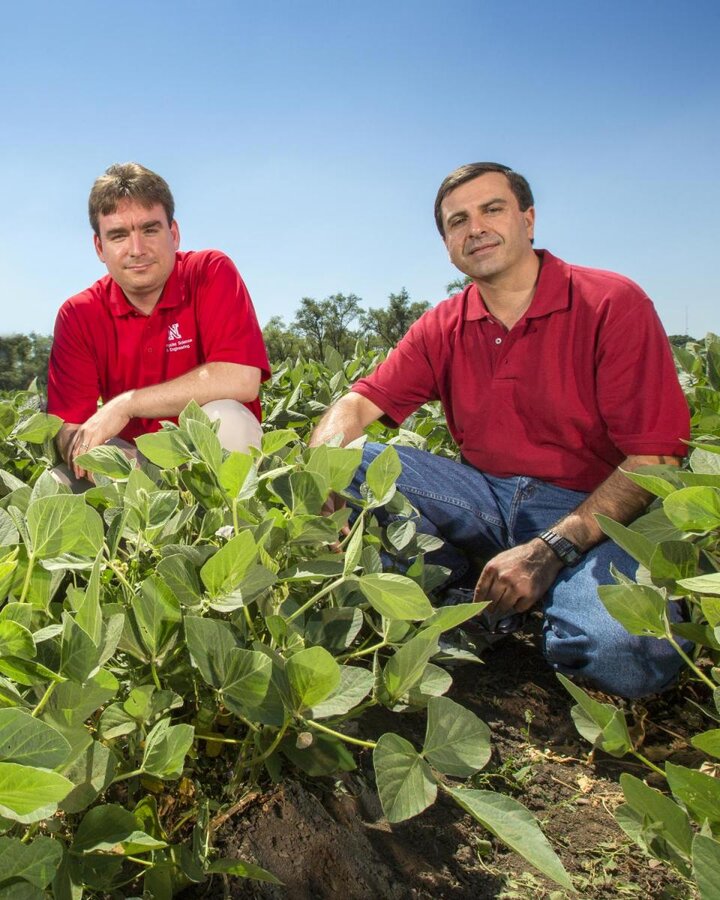University of Nebraska-Lincoln researchers have received a $450,000 grant from the National Science Foundation to develop a second generation of underground sensor technology to automate decision-making for crop irrigation.
Suat Irmak, Harold W. Eberhard Distiguished Professor of biological systems engineering, and Mehmet Can Vuran, a Susan J. Rosowski Associate Professor of computer science and engineering, have collaborated since 2008 on the project titled “2G for UG: High Data-Rate and Long Range Communication Techniques for Wireless Underground Networks.”
Second generation wireless underground communication techniques with ranges and data rates comparable to conventional wireless devices will allow farmers to bury tens to hundreds of wireless soil sensors and receive real-time soil information without worrying about impacts of machinery on the field.
“Future irrigation systems will demand easier, but robust and more autonomous control to simplify and enhance decision-making,” said Irmak “Our long-term collaboration is designed towards contributing to future generation irrigation and engineering and computer engineering disciplines as well as aid growers to enhance production efficiency in their operations. This grant will also enable us to make advances in agricultural science, which has explicit research, Extension and education implications.”
The applications of their work could also extend beyond agriculture. The sensors might also be employed in smart-road infrastructure to monitor highway conditions.
“This project will enable a wide array of novel solutions,” Vuran said, “from saving water resources for more food production to saving lives on roadways.”
Large-scale field applications are underway in Irmak’s advanced irrigation engineering field research facilities at the South Central Agricultural Laboratory near Clay Center.

